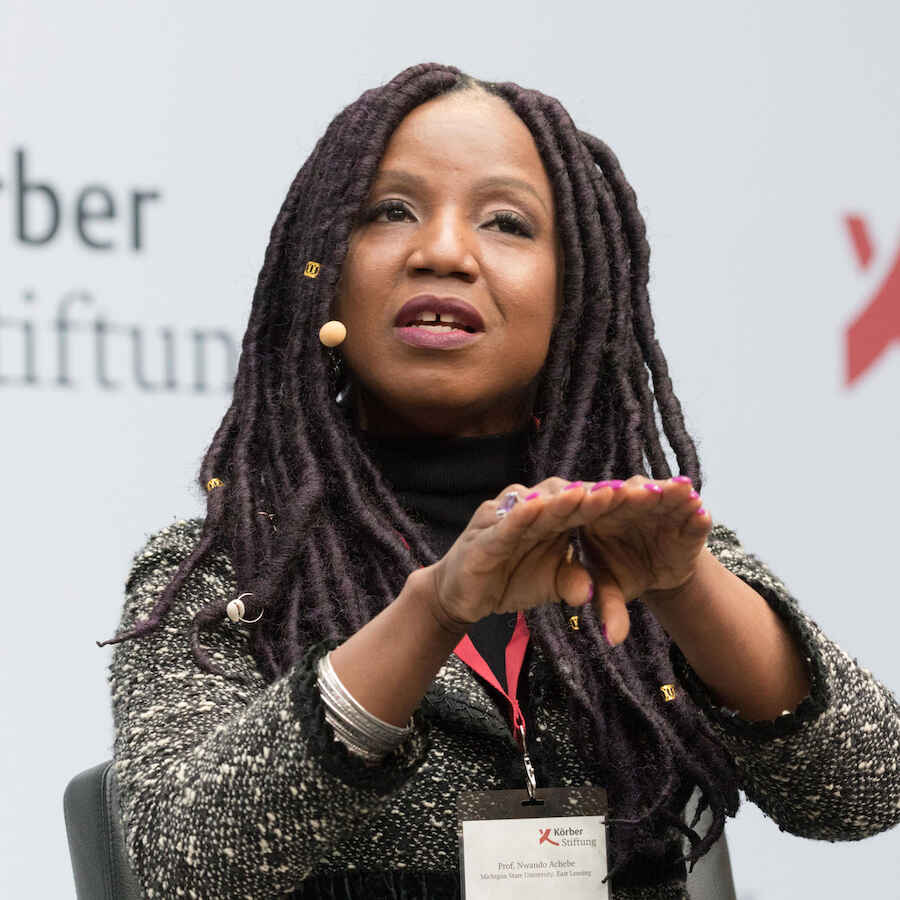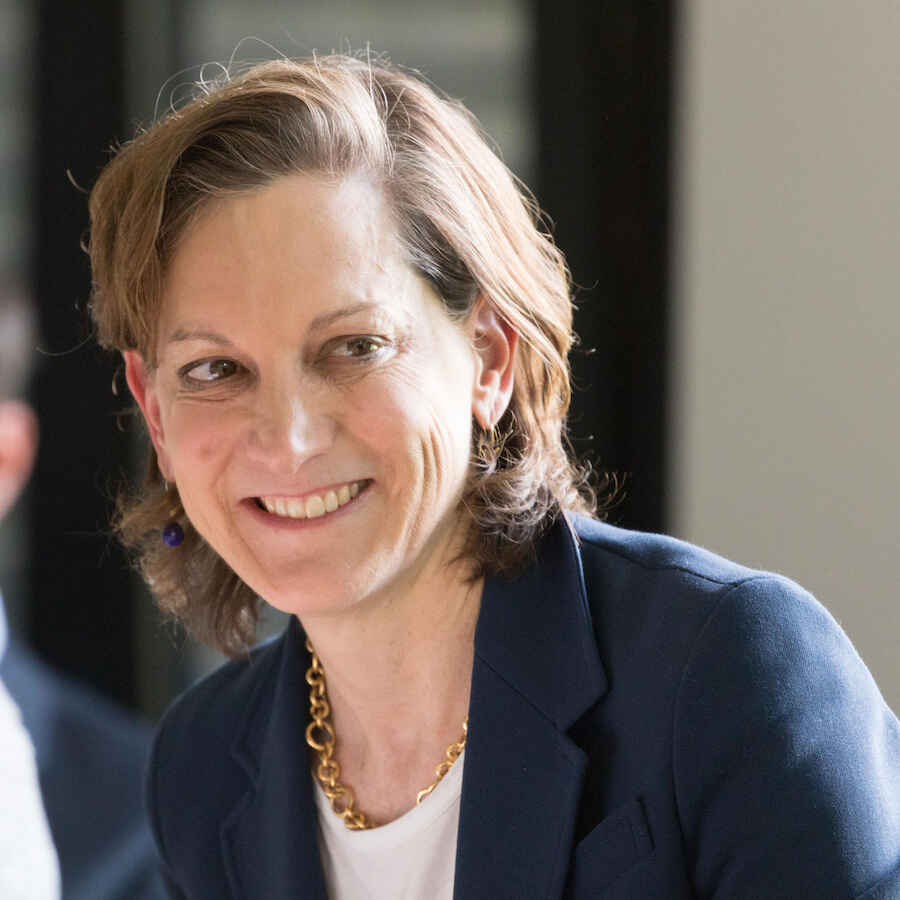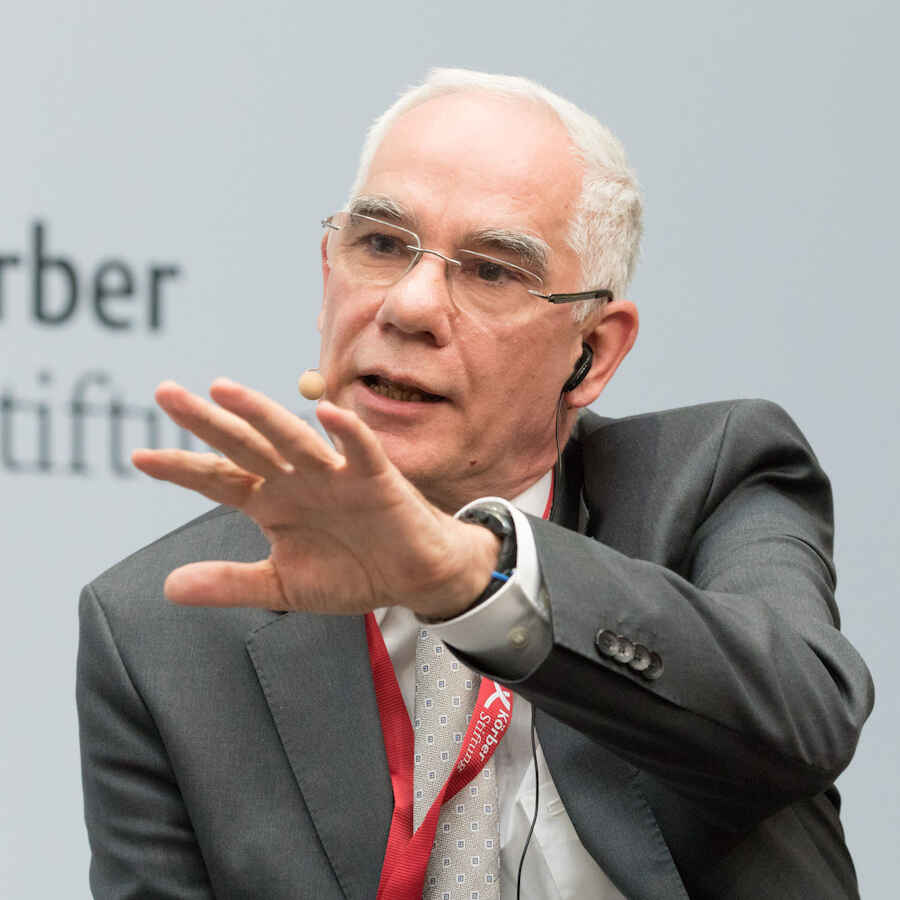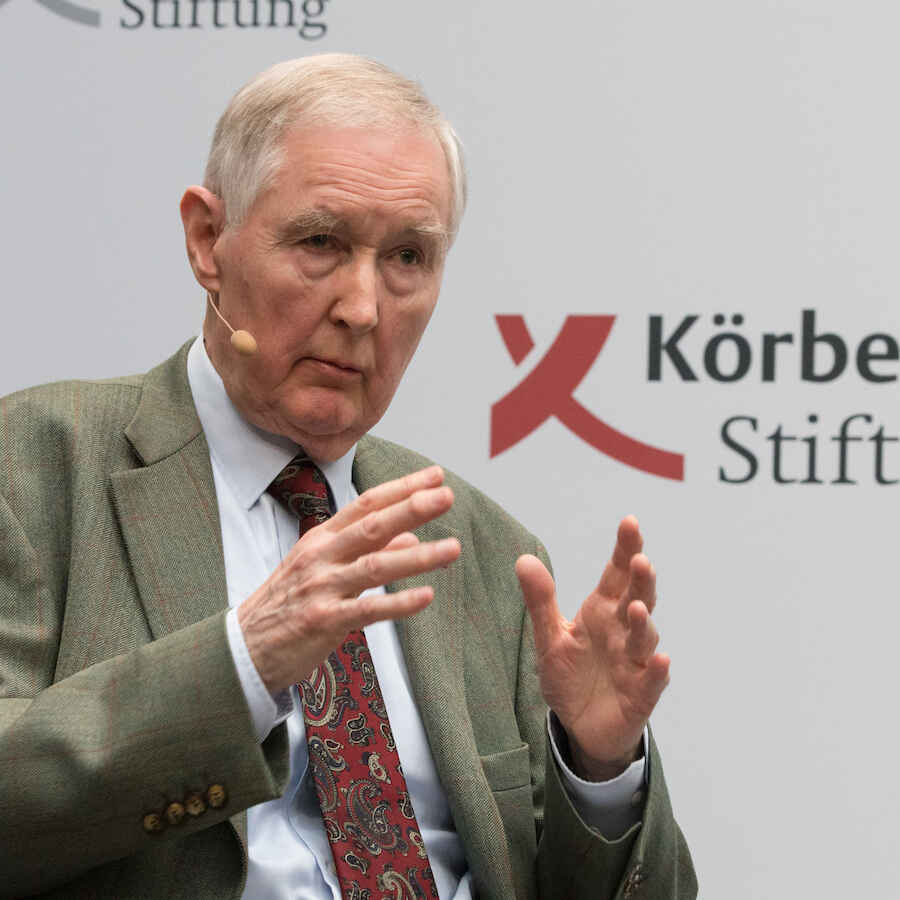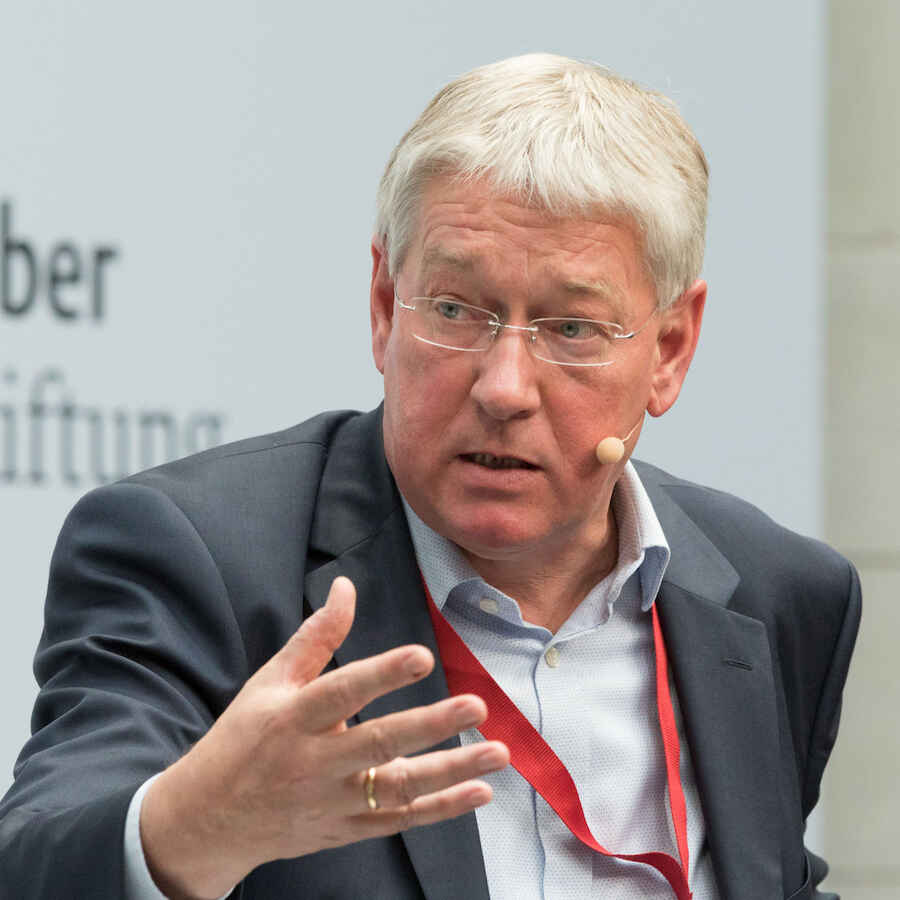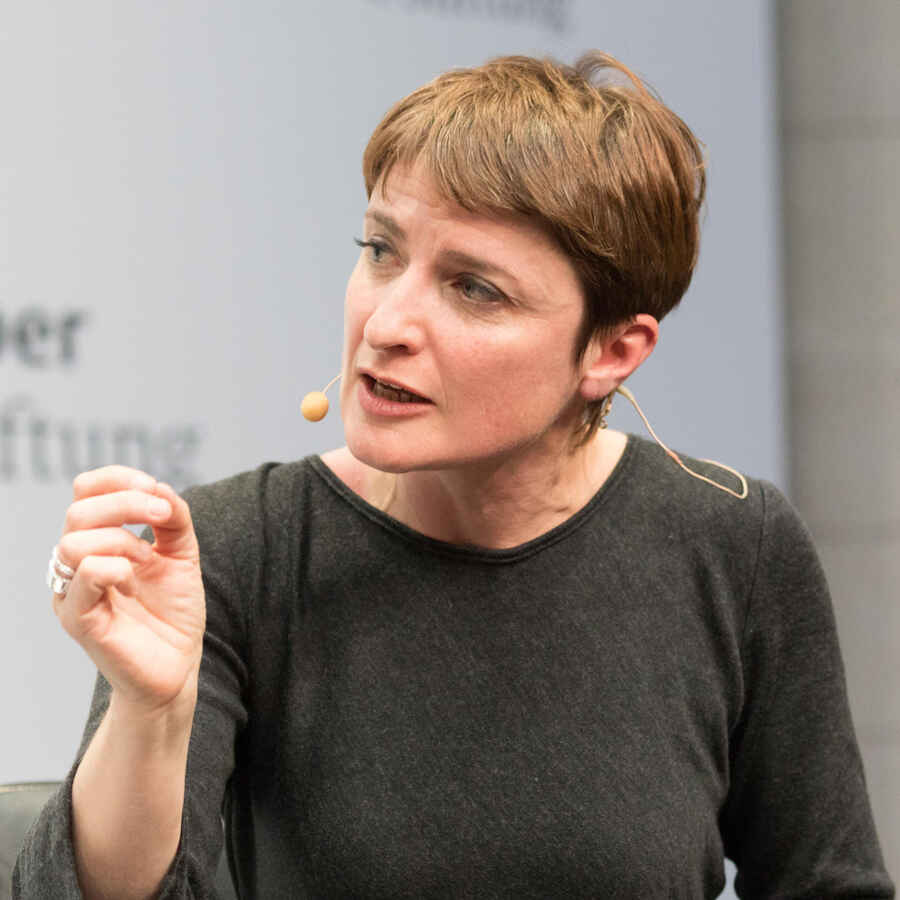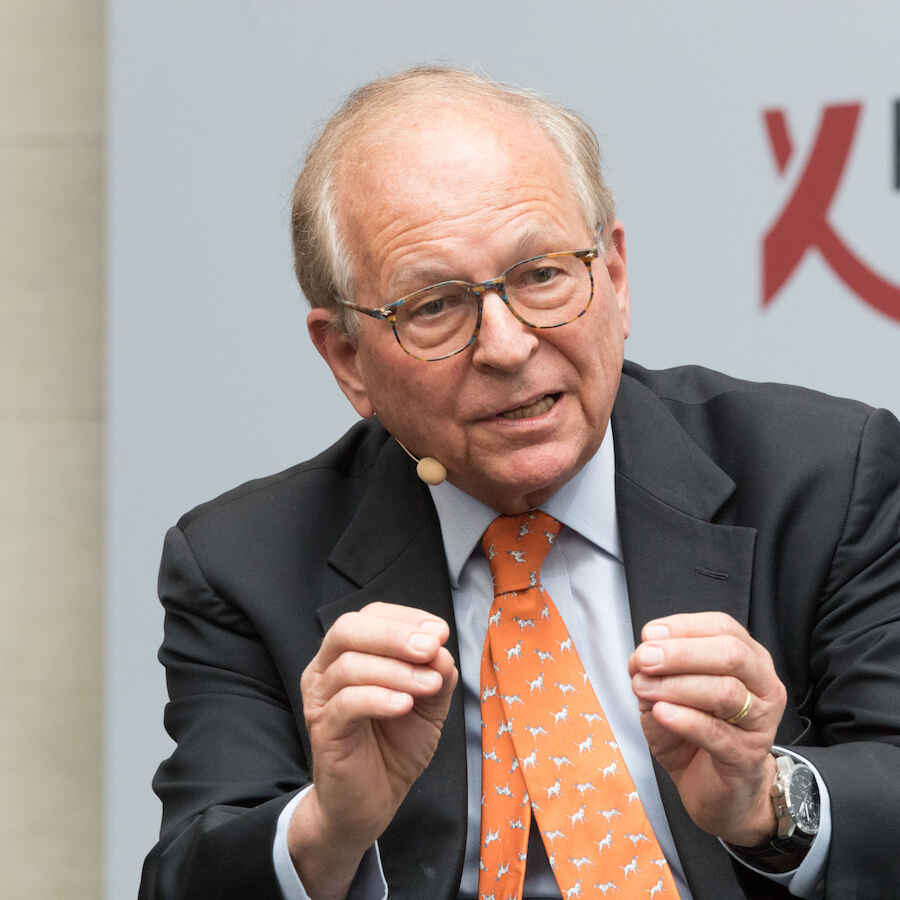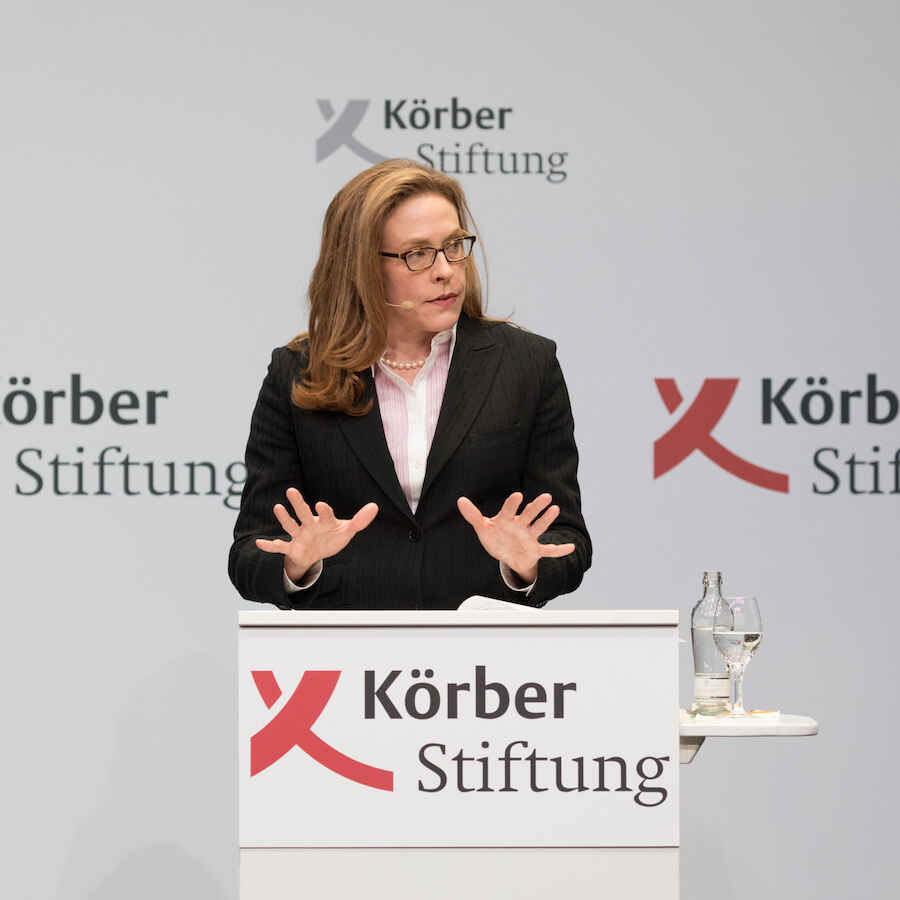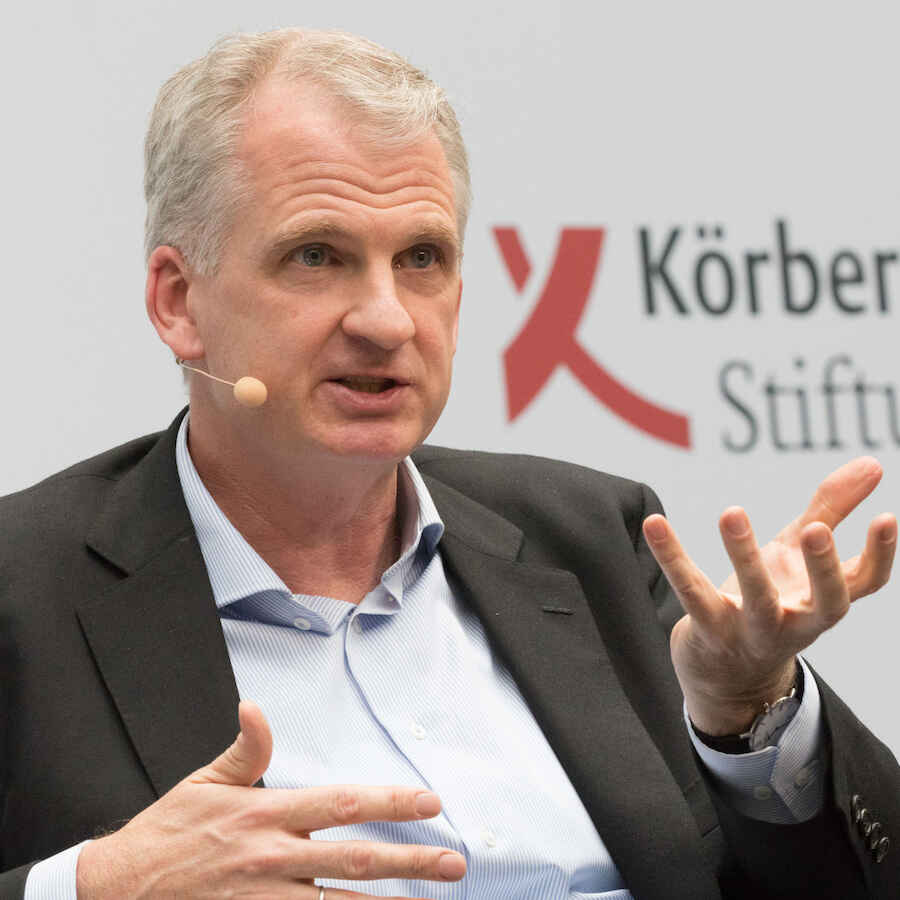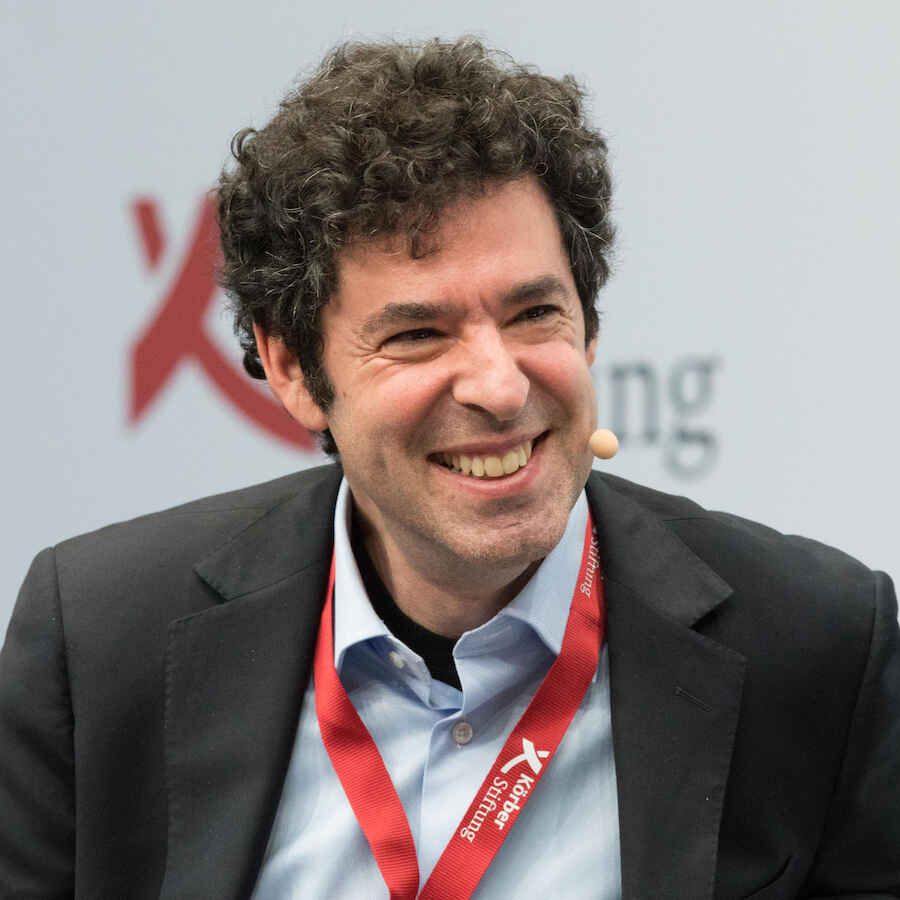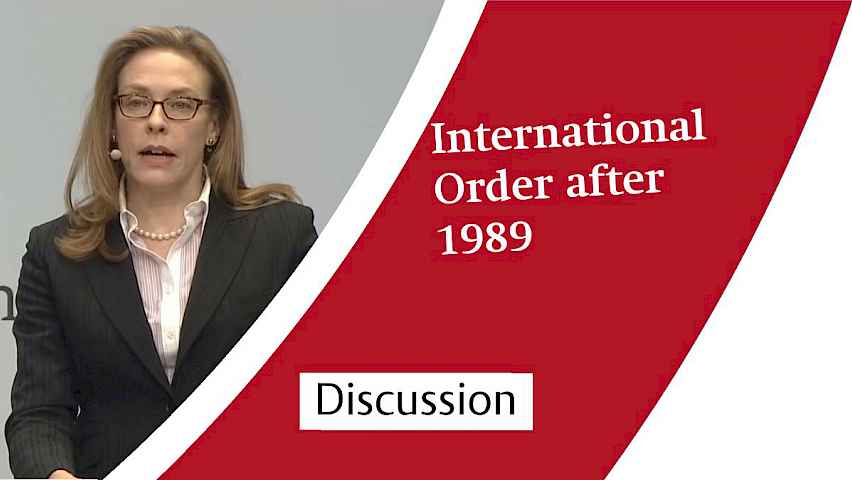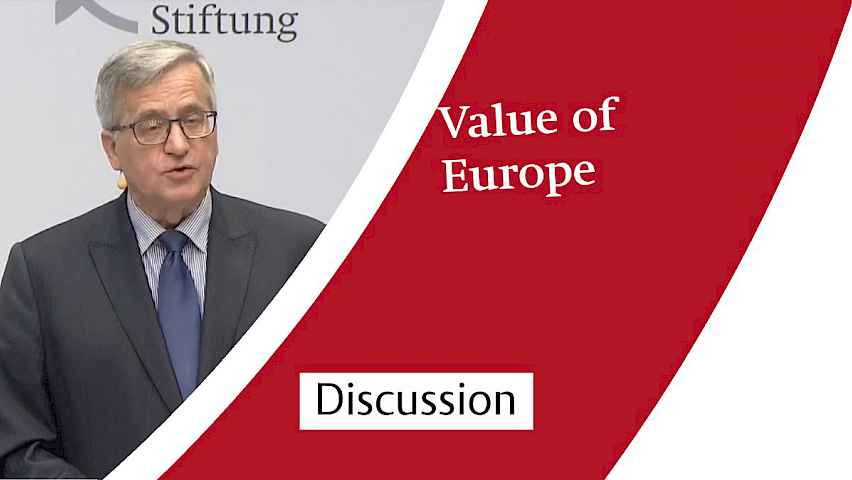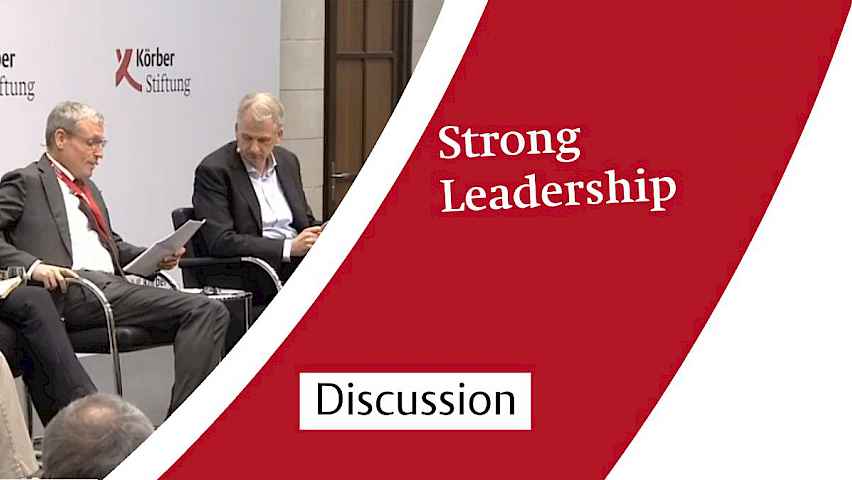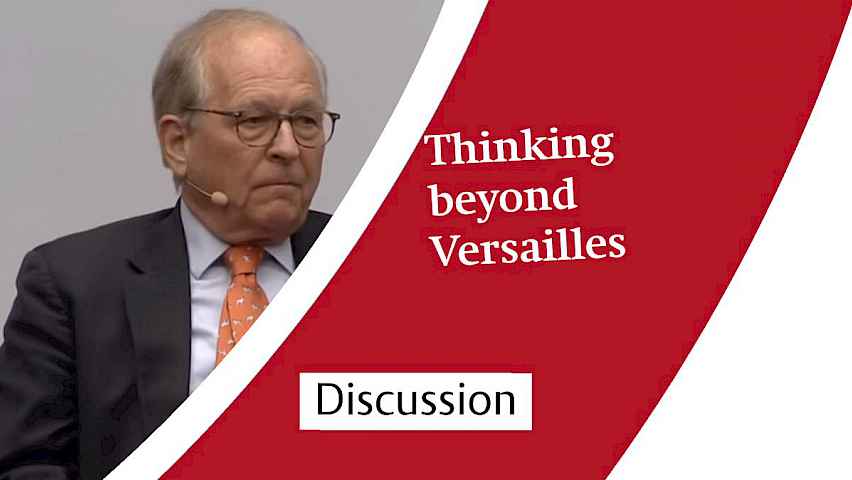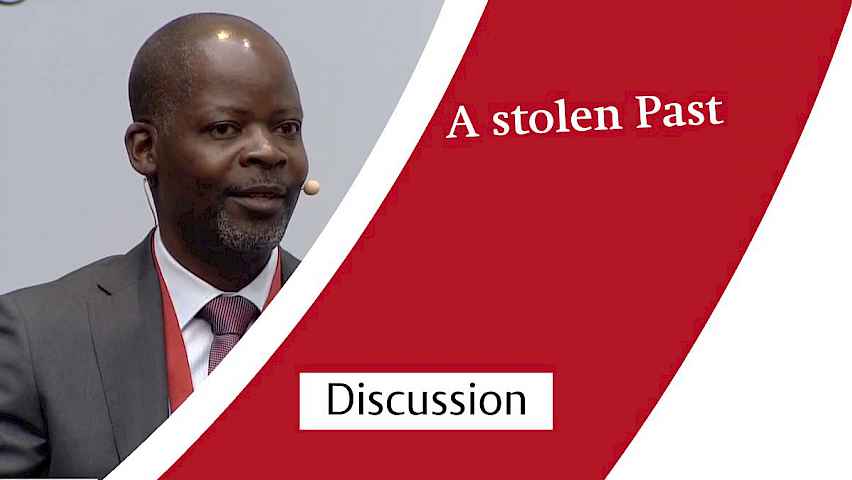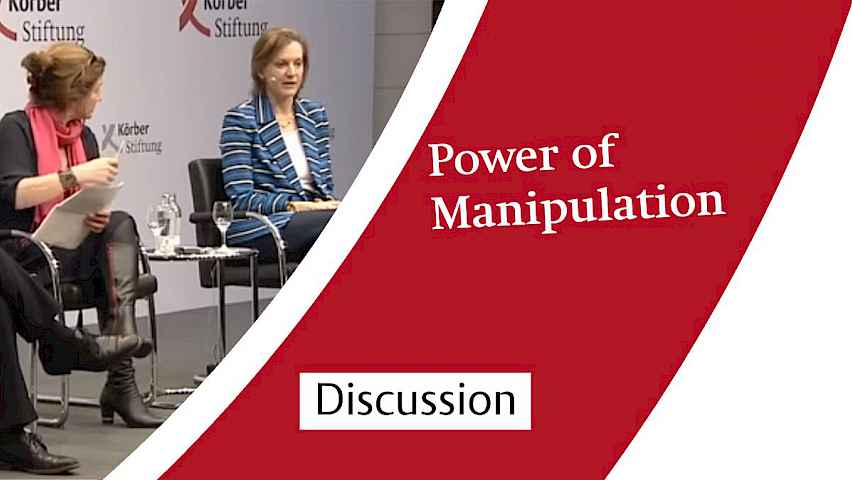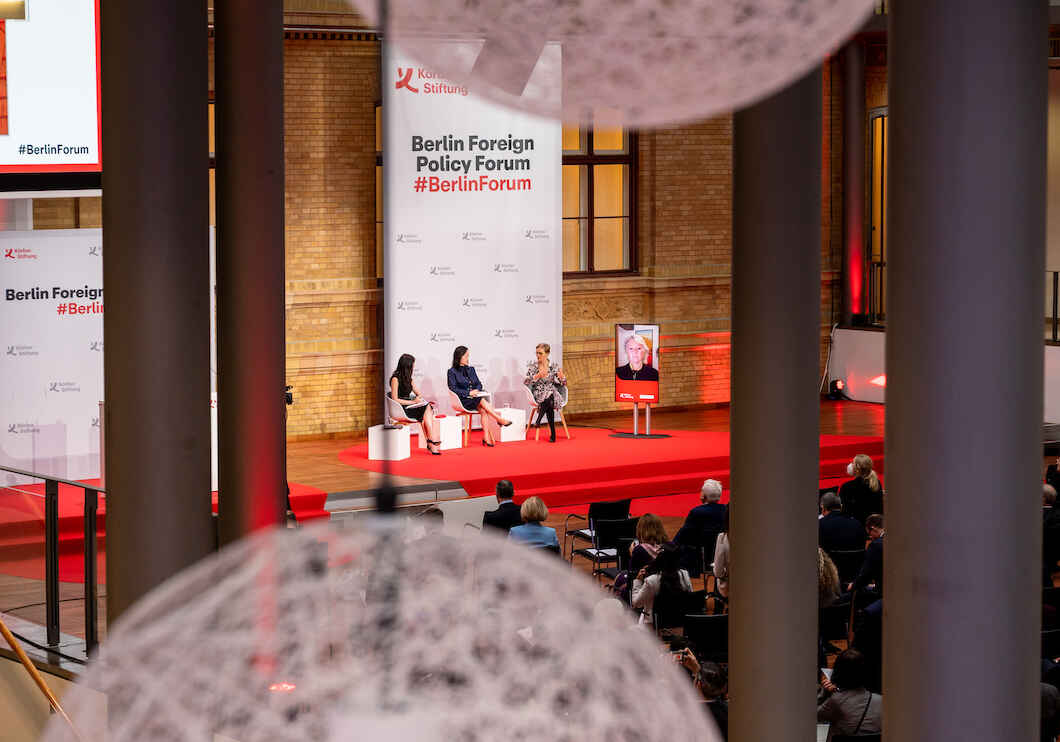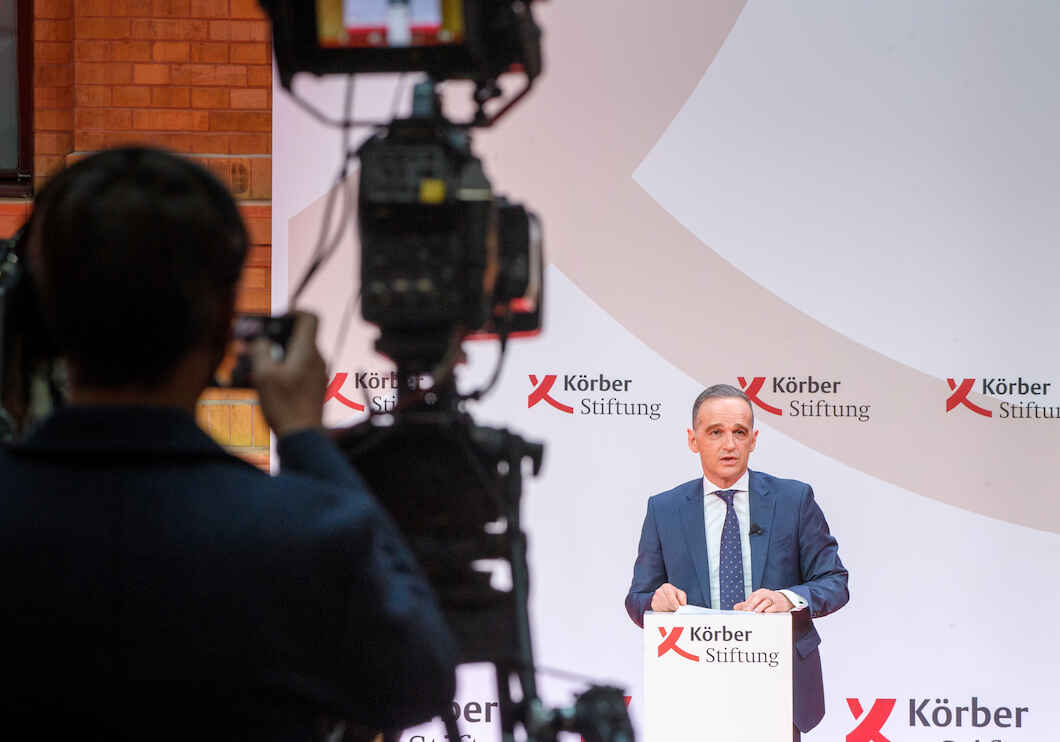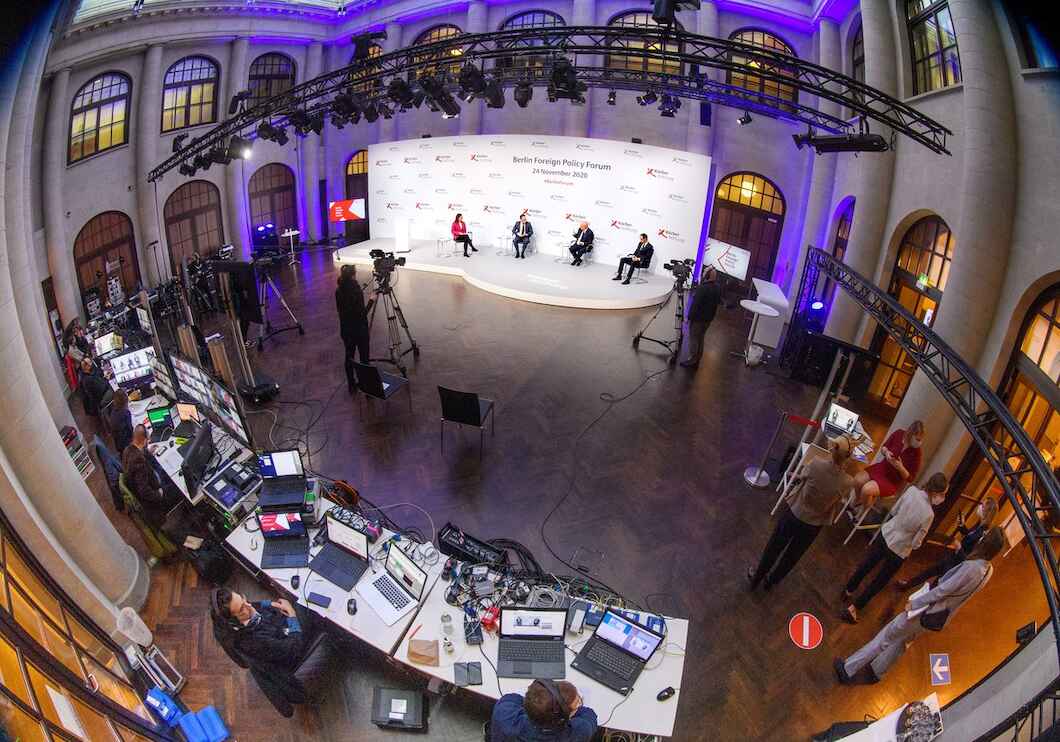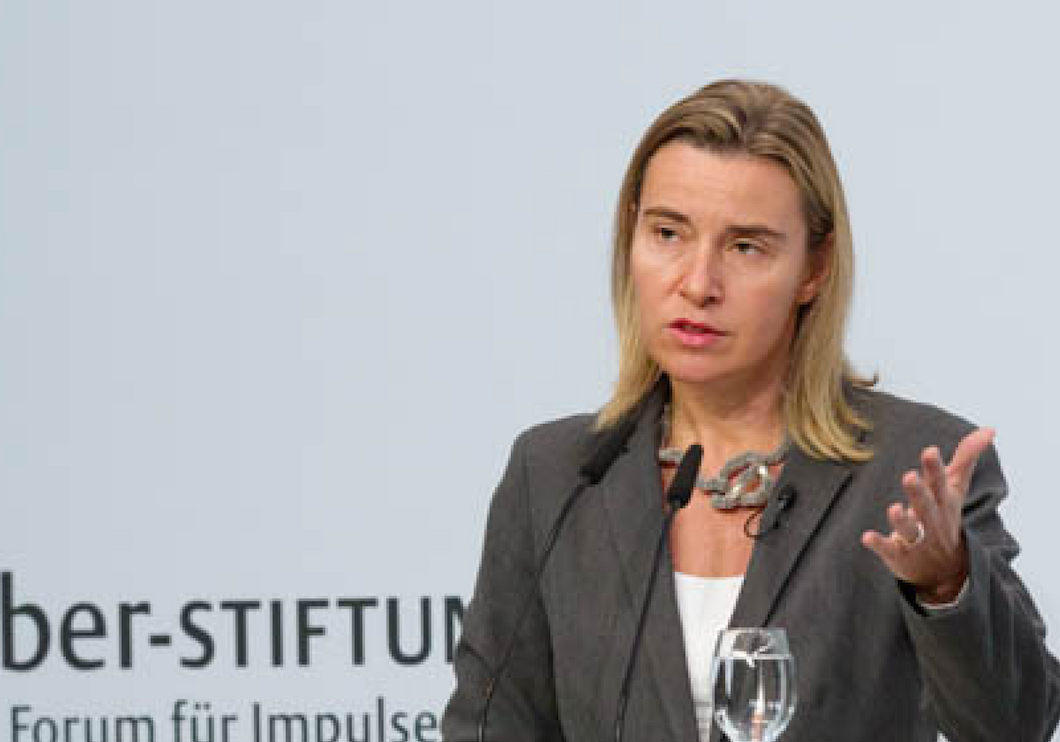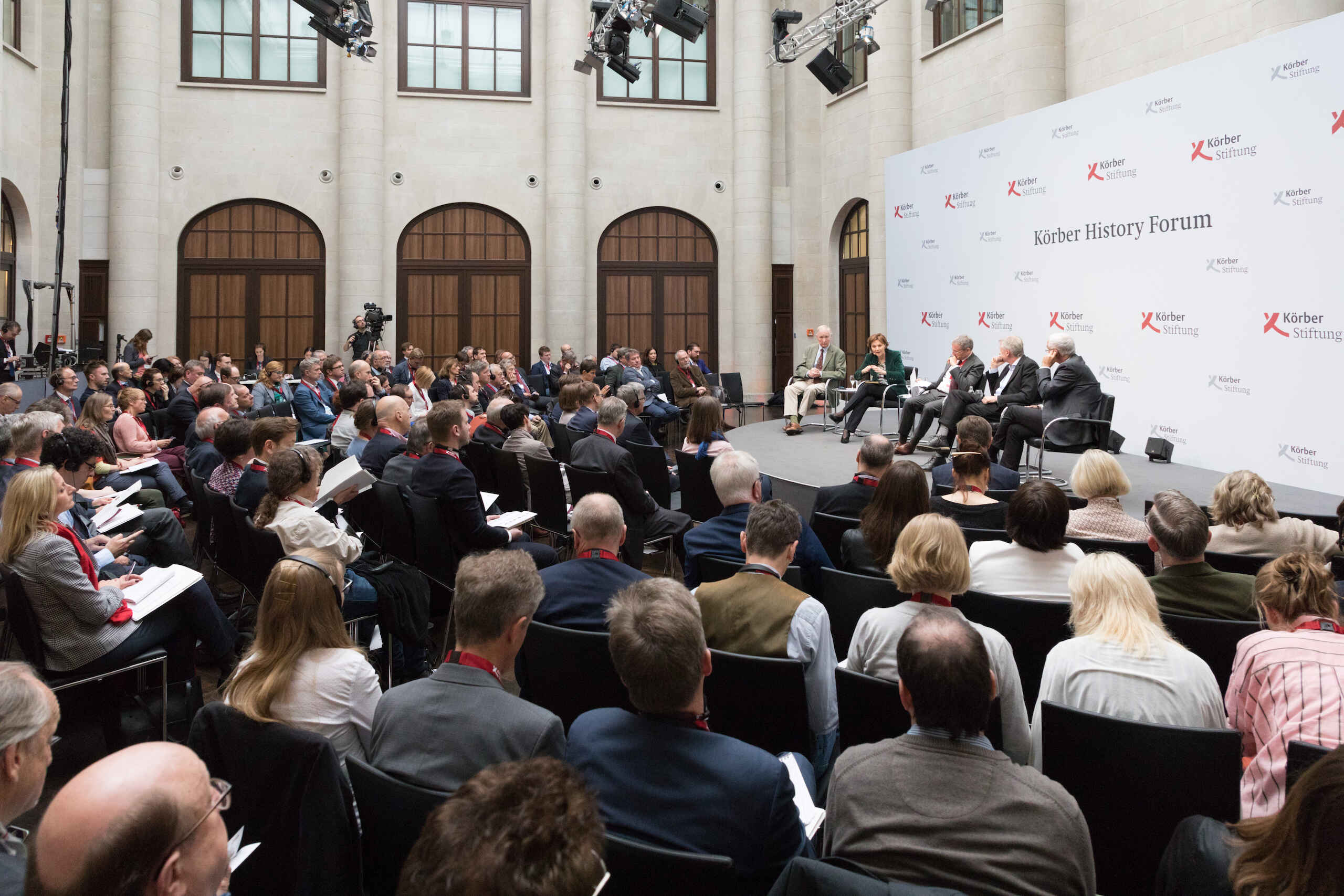
Körber History Forum 2019
Photo: Marc Darchinger
Körber History Forum 2019
Connecting Politics and History
Old myths and new propaganda, strong leaders and weak peace agreements, dangers for democracy and Europe's crises: there was much to discuss at the fourth Körber History Forum in Berlin.
For two days, more than 200 scientists, politicians, journalists and intellectuals contentiously debated the past and occasionally looked cautiously to the future.
Images
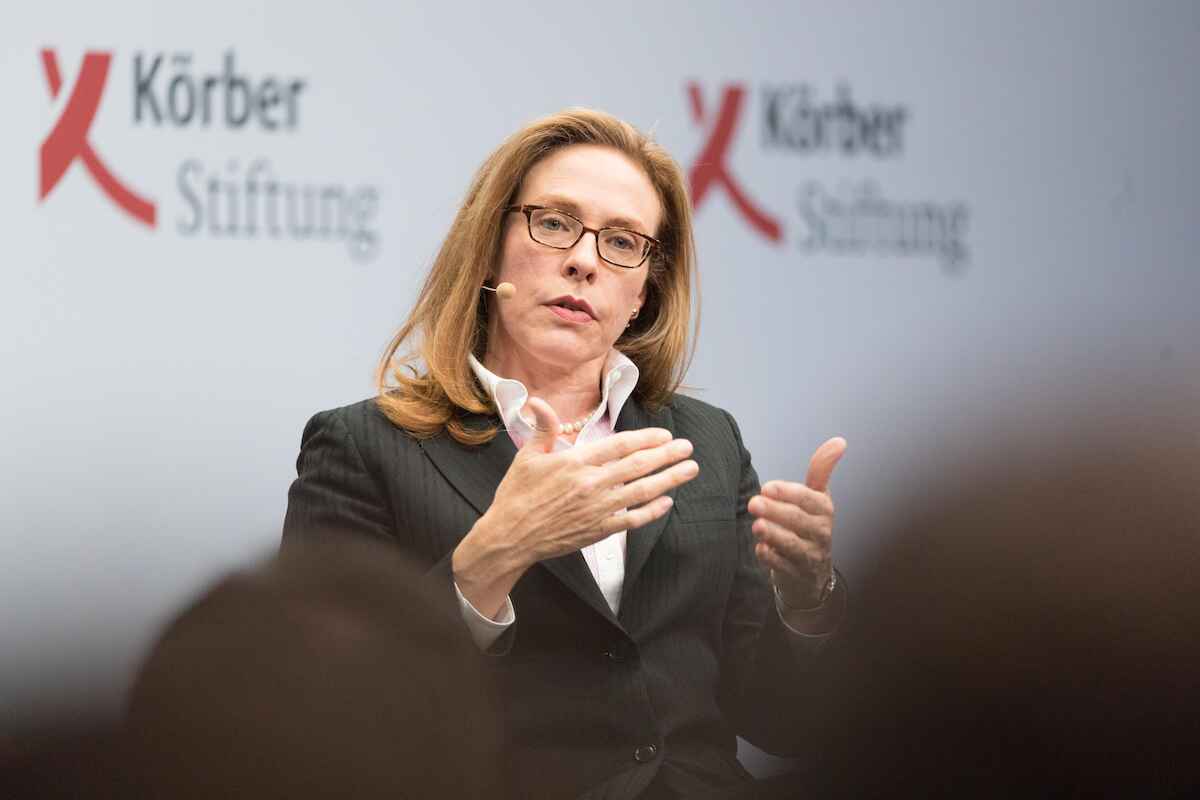
American historian Mary Elise Sarotte opened the Körber History Forum with her keynote, reassessing the road to the post-Cold-War order after 1989 Photo: Marc Darchinger 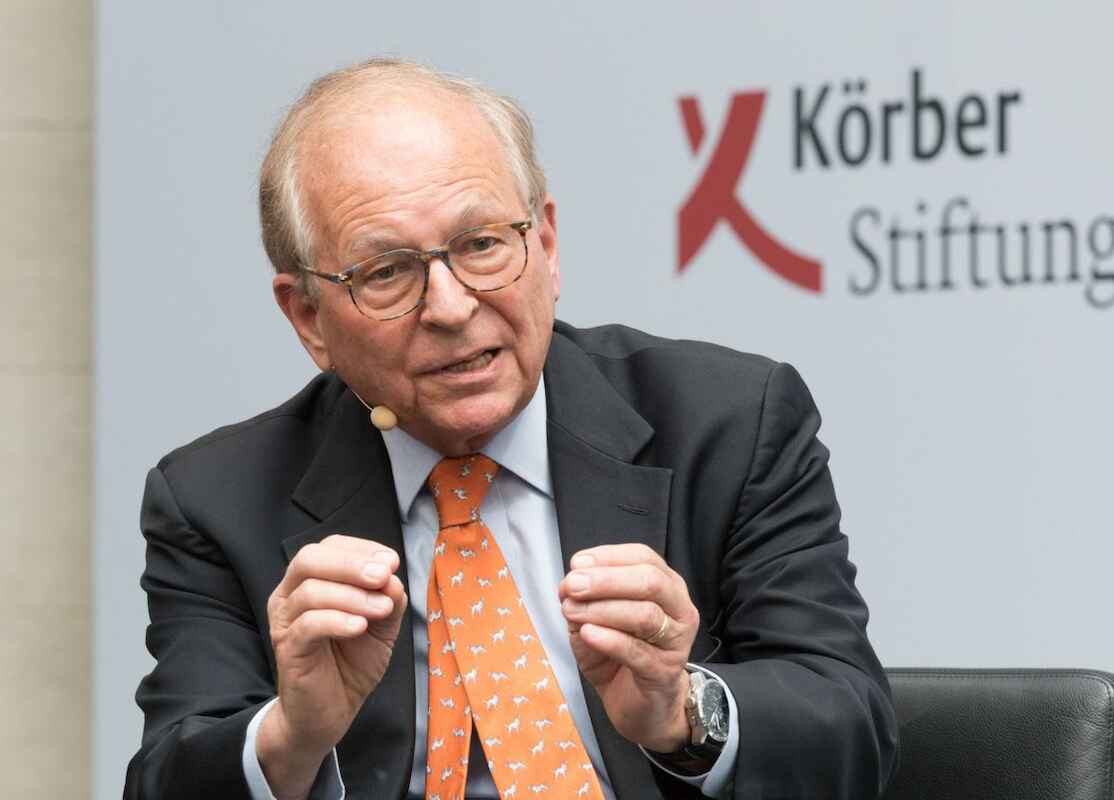
Wolfgang Ischinger, Chairman of the Munich Security Conference, was amidst those who debated possible lessons from the Paris Peace Order Photo: Marc Darchinger 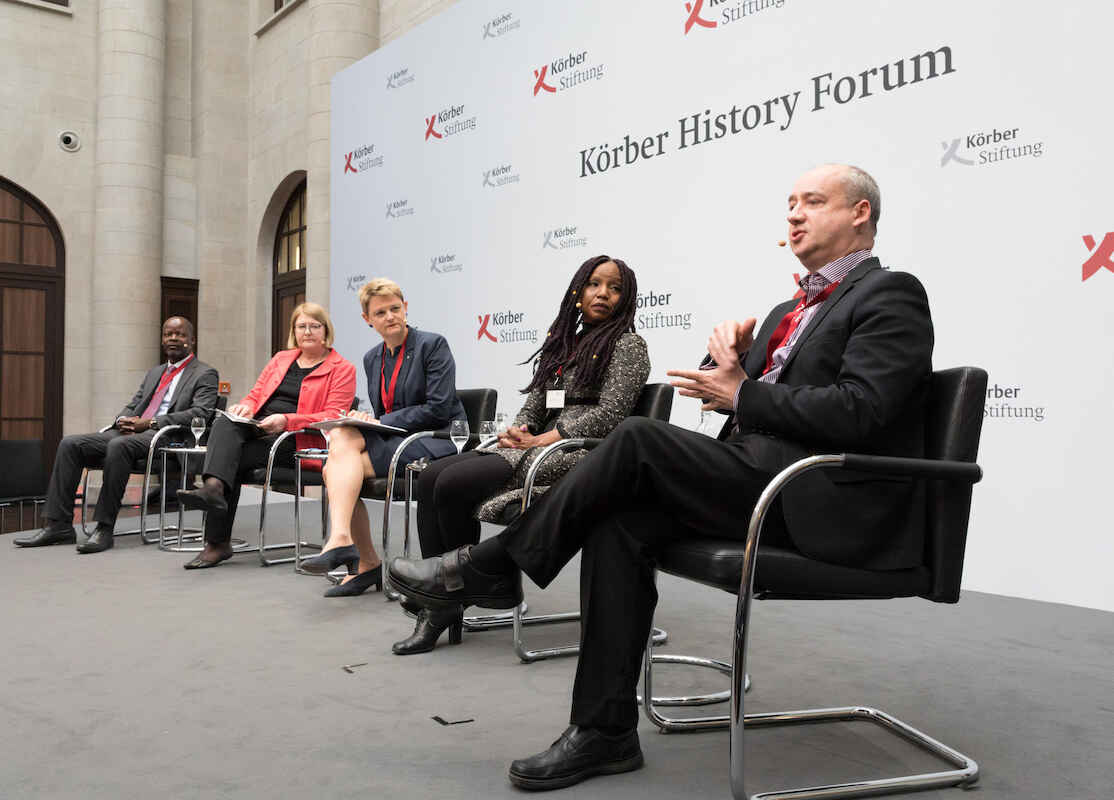
James Shikwati, Antje Leendertse, Christine Gerberding, Nwando Achebe of and Philip Murphy, looked into how a dialog as equals between former colonial powers and former colonies could be achieved Photo: Marc Darchinger 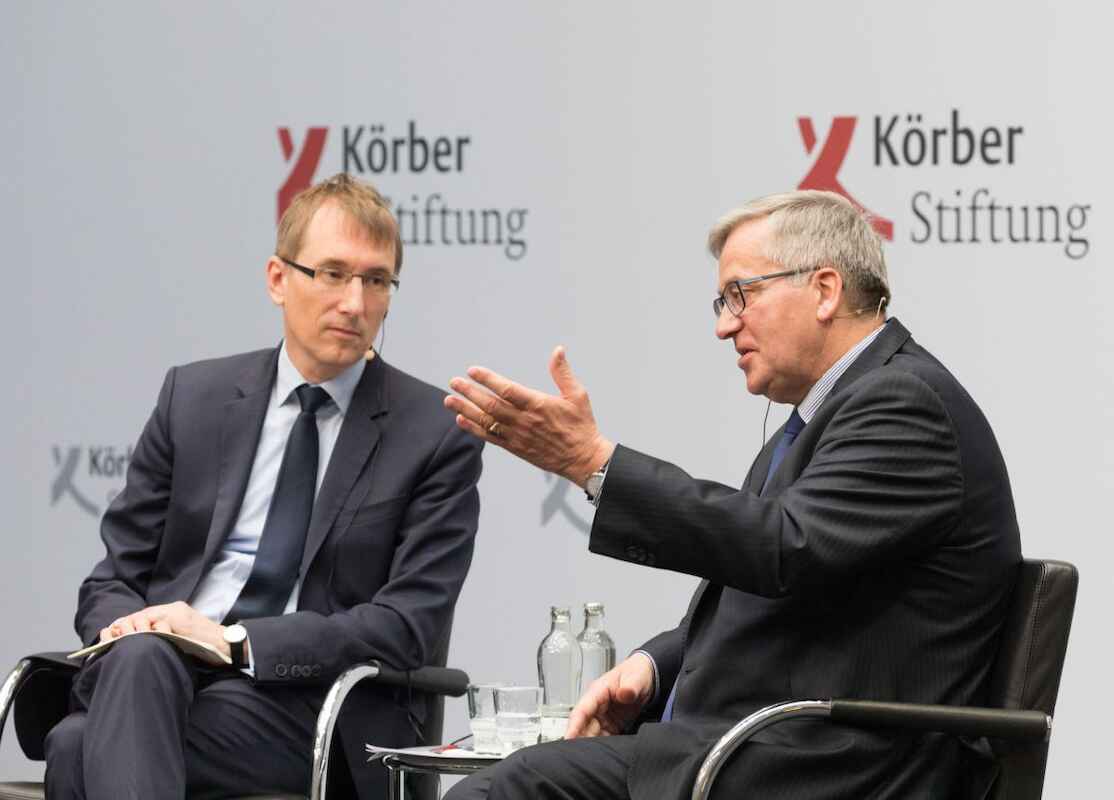
Former Polish President Bronisław Komorowski (r.) talked with Thomas Paulsen, Körber-Stiftung Executive Board about the value of Europe Photo: Marc Darchinger 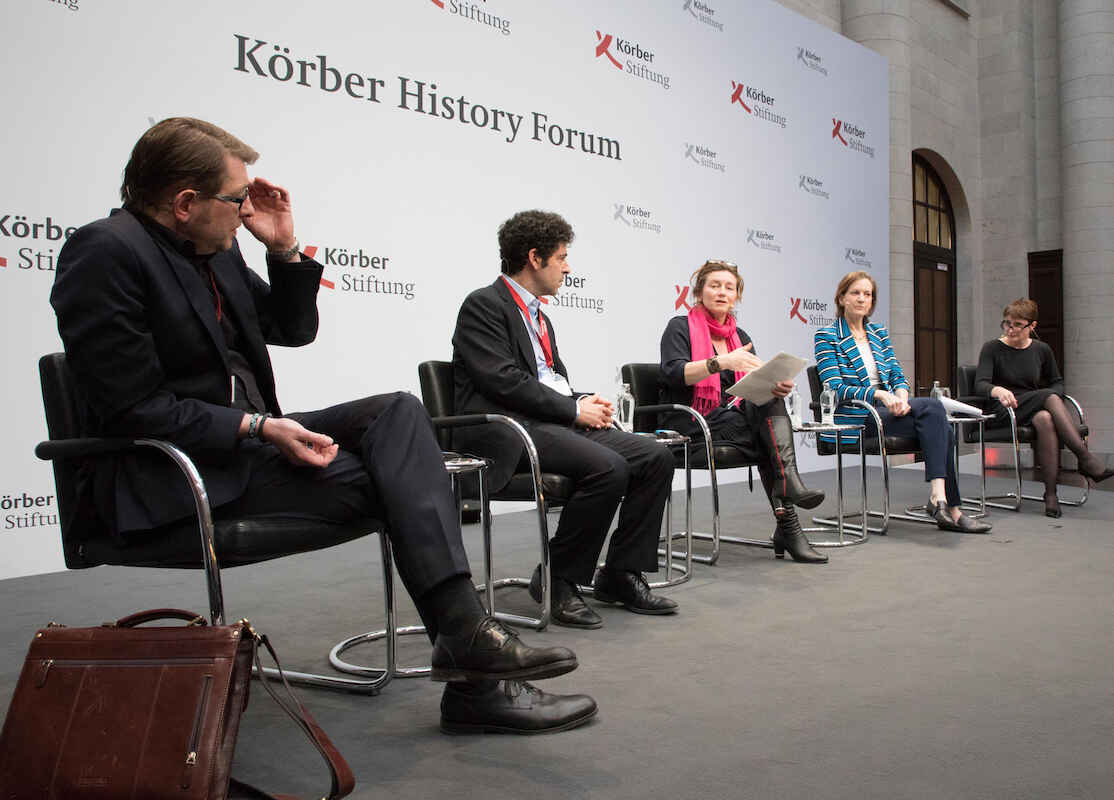
The power of manipulation was the topic of the panel with Markus Engels, Jason Stanley, Natalie Nougayrède, Anne Applebaum and Jo Fox Photo: Marc Darchinger
Programme
Programme
A broken promise of a better future? Reassessing the road to the post-Cold-War order after 1989
Thirty years after the fall of the Berlin Wall and the euphoric proclamation of a “new world order”, old-fashioned power rivalries continue to characterize international relations. The developments that followed 1989 have, in the longer term, produced a deepening antagonism between Russia and the West; while some borders have disappeared, new fronts have emerged. Among the central points of dispute is the question of mutual assurances regarding spheres of geopolitical interest, including the issue of NATO expansion. Diverging interpretations of these historic developments continue to hinder international understanding and dialogue.
To what extent do current challenges for European security policy have their roots in the decisions and commitments of the powers involved in the process of German and European reunification? Which myths and misperceptions need correcting in order to facilitate future dialogue?
Keynote Mary Elise Sarotte
Focus: What is the value of Europe?
Central Eastern Europe has changed profoundly since 1989 and asserted itself as an integral part of the European project. Yet while political and economic development and European integration propelled former socialist countries toward free markets and democratic statehood, joining the European Union came at a price. Deepening divisions in domestic political arenas have exposed a rising estrangement from liberal democratic values and ideals once so instrumental to forging European unity.
Based on the Central Eastern European experience of transformation, what values will hold the European project together in future?
With Bronisław Komorowski, Former President of the Republic of Poland, Warsaw
Discussion: Is strong leadership a threat to democracy? Personality, power and populism in historical context
At the beginning of the 21st century, populist movements and calls for “strong leadership” gained key importance in national and international politics. While on the one hand concerns are brought forward that this development promotes an erosion of principles of liberal-democratic decision-making, other voices point out the need for democratic renewal and the legitimacy of strong political leadership.
Are democratic principles weakened by strong leaders? What lessons does the past, and especially the history of vulnerable democratic policies of the 1920s, hold with regard to current challenges?
With Zoltán Balog, Archie Brown, Daniel Brössler, Sylvie Kauffmann, Timothy Snyder
Discussion: Thinking beyond Versailles Current lessons from the Paris Peace Order and its concepts for collective security
After the end of World War I, the Paris Peace Conference aspired to establish a stable peace order for Europe and the world, based on the peoples’ right to self-determination and the establishment of a League of Nations as the core of a new concept of collective security. Though widely regarded as a seminal moment in modern diplomacy, the treaties concluded at Paris were subject to stark contemporary criticism and, ultimately, limited in their influence on the international order of the interwar period.
What remains of the legacy of Paris and what lessons can be learned from the diplomatic feats and failures of the interwar period?
In cooperation with Der Spiegel as part of the debate series “Making peace”.
With Eckart Conze, Wolfgang Ischinger, Dirk Kurbjuweit
Discussion: A stolen past? Europe and the compensation of colonial injustice
To this day, the legacy of the colonial era influences international relations and domestic debates both in European and former colonial societies. While new initiatives seek to right past wrongs, misconceptions of the scope of injustice, imbalance and conflict established through colonial rule persist.
How can a genuine understanding of the profound and systemic impact of colonialism be reached? And what is needed in order to achieve an egalitarian and forward-looking dialogue between former colonial powers and previous colonies?
With Nwando Achebe, Christine Gerberding, Antje Leendertse, Philip Murphy, James Shikwati
Discussion: The power of manipulation on dealing with propaganda and “fake news” in the past and present
With the advent of a so-called “post-fact era”, the importance of balanced information vis-à-vis manipulative misuse of media has become a central concern to safeguarding democratic debate and maintaining social peace. History shows a long tradition of manipulative communication patterns, propaganda and falsification, often gaining destructive public influence.
How have demagogy and manipulation been held in check in the past and what tools are needed to do so today?
With Anne Applebaum, Jo Fox, Markus Engels, Natalie Nougayrède, Jason Stanley
